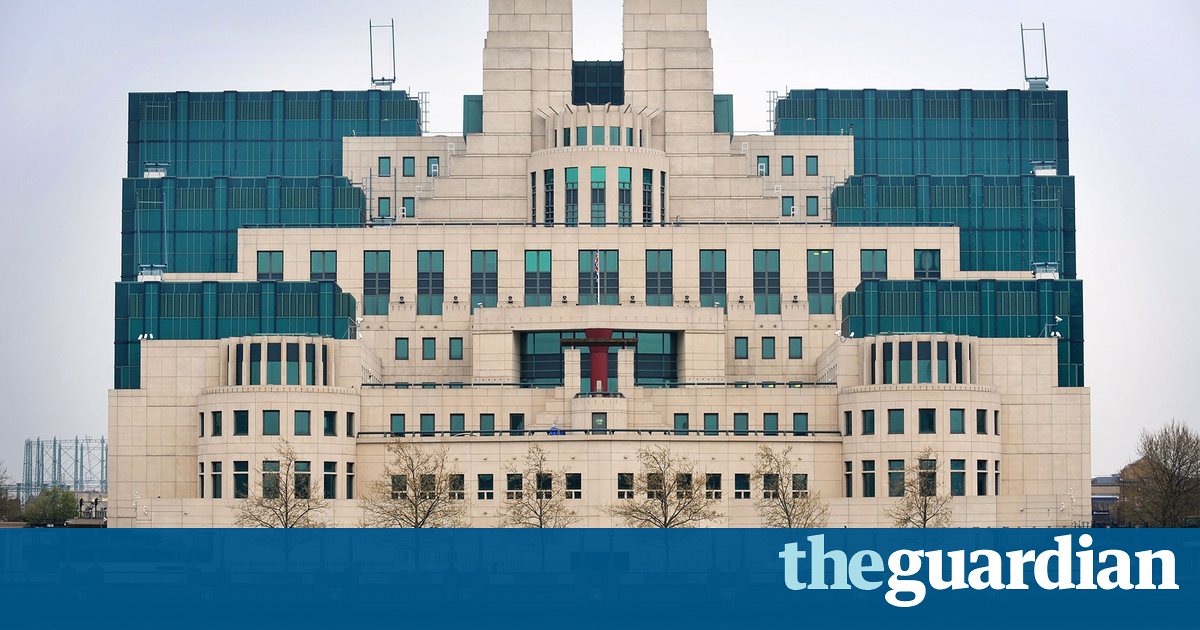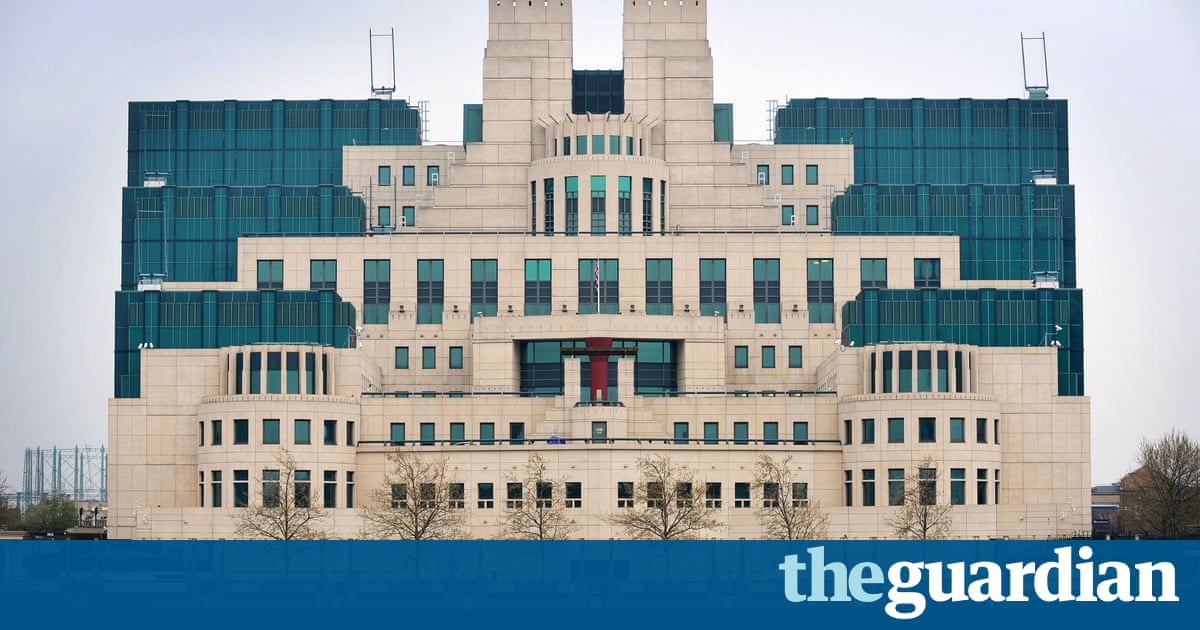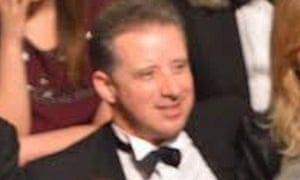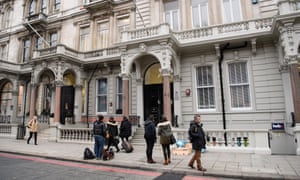Donald Trump dossier: intelligence sources vouch for author’s credibility

Ex-MI6 officer Christopher Steele, named as writer of Donald Trump memo, is highly regarded professional

His denials at least some of them were emphatic, even by the standards that Donald Trump has come to be judged by. The dossier, he said, was a confection of lies; he compared it to Nazi propaganda; it was fake news spread by sick people.
At his press briefing on Wednesday, the president-elect dared the worlds media to scrutinise the 35 pages of claims, before throwing down a challenge wheres the proof? Nobody had any. Case closed.
But in the rush to trample all over the dossier and its contents, one key question remained. Why had Americas intelligence agencies felt it necessary to provide a compendium of the claims to Barack Obama and Trump himself?
And the answer to that lies in the credibility of its apparent author, the ex-MI6 officer Christopher Steele, the quality of the sources he has, and the quality of the people who were prepared to vouch for him. In all these respects, the 53-year-old is in credit.

On Thursday night, as the former spy was in hiding, having fled his home in the south-east of England, former colleagues rallied to defend him. One described him as very credible a sober, cautious and meticulous professional with a formidable record.
The former Foreign Office official, who has known Steele for 25 years and considers him a friend, said: The idea his work is fake or a cowboy operation is false completely untrue. Chris is an experienced and highly regarded professional. Hes not the sort of person who will simply pass on gossip.
The official added: If he puts something in a report, he believes theres sufficient credibility in it for it to be worth considering. Chris is a very straight guy. He could not have survived in the job he was in if he had been prone to flights of fancy or doing things in an ill-considered way.
That is the way the CIA and the FBI, not to mention the British government, regarded him, too. Its not hard to see why.
A Cambridge graduate, Steele was one of the more eminent Russia specialists for the Secret Intelligence Service (MI6). The Guardian understands that he focused on Soviet affairs after joining the agency, and spent two years living in Moscow in the early 1990s.
This was a period when Russia and the breakup of the eastern bloc were still the prime focus for Britains intelligence agencies, and a successful spell in the region was a good way to get on.
By all accounts, thats exactly what Steele did. And his interest in Russia did not diminish as he continued to rise up the ranks, a friend and contemporary of Alex Younger now head of MI6.

Over a career that spanned more than 20 years, Steele performed a series of roles, but always appeared to be drawn back to Russia; he was, sources say, head of MI6s Russia desk. When the agency was plunged into panic over the poisoning of its agent Alexander Litvinenko in 2006, the then chief, Sir John Scarlett, needed a trusted senior officer to plot a way through the minefield ahead so he turned to Steele. It was Steele, sources say, who correctly and quickly realised that Litvinenkos death was a Russian state hit.
As good as he was, Steele was unlikely to get the top MI6 job, perhaps because his specialisms were not a priority in that period Russian espionage was taking a back seat to Islamic terrorism and non-state threats. And, of course, there is money to be made in the private sector lots of it, particularly in the past two years. He decided to quit the service in 2009.
As the Russian president, Vladimir Putin, exerted influence in all kinds of spheres, so Steeles background made him hot property. Though he could not travel to Russia, he appears to have maintained his contacts and made new ones, using old-school techniques: going out, meeting people, shaking hands, making friends and paying for information.
With his business partner, Chris Burrows, he set up the London-based company Orbis Business Intelligence, which was busy and expanding. Their operation would have been a good choice for anyone trying to gather intelligence about Russia and Trump.
It is unlikely that Steele would have had direct contact with the unnamed Kremlin officials who allegedly gave sensitive information on the president-elect. In fact, its believed the former spy hasnt been able to visit Russia for more than 20 years. Rather, Steele would have tapped up his network of sources deep inside the country, some of them dating from his time there and others cultivated later, British officials suggested.
In turn, these individuals will have had sources of their own. Steele would likely have subcontracted some of his Trump investigation to trusted intermediaries in Moscow, who will have reported back to him via secure channels.
This method of intelligence collection may explain the odd language anomaly in the Trump dossier that emerged into the public eye late on Tuesday. In a September briefing note, Steele mentions the Alpha-Group, a reference to the consortium headed by the powerful oligarch Mikhail Fridman. The more usual English spelling is Alfa.
Almost certainly, a native Russian speaker wrote the original material, correctly transliterating the Russian f as ph. It was Steeles job to collate, evaluate and verify this material before passing it to his American client Fusion GPS, a Washington-based political research firm. The company had been hired originally by one of Trumps early Republican opponents before the contract was taken up by senior Democrats.
The Foreign Office official who spoke to the Guardian on Thursday acknowledged that the Steele dossier was not perfect. But he pointed out that intelligence reports always came with gradations of veracity and included phrases such as a high degree of probability. You arent dealing with a binary world where you can say this is true and this isnt, the official said.
He added: The strongest reason for giving this report credence is that intelligence professionals in the US take it seriously. They were sufficiently persuaded by the authors track record to find the contents worth passing to the president and president-elect.